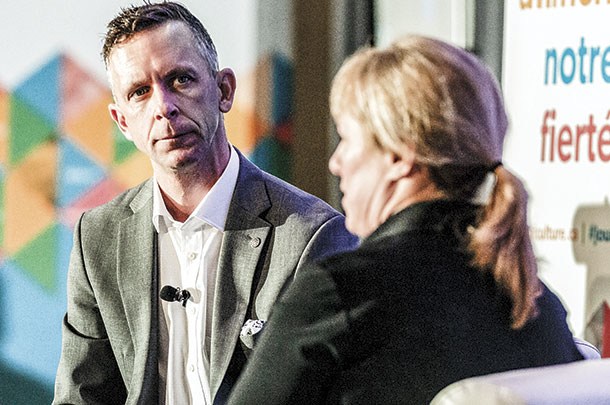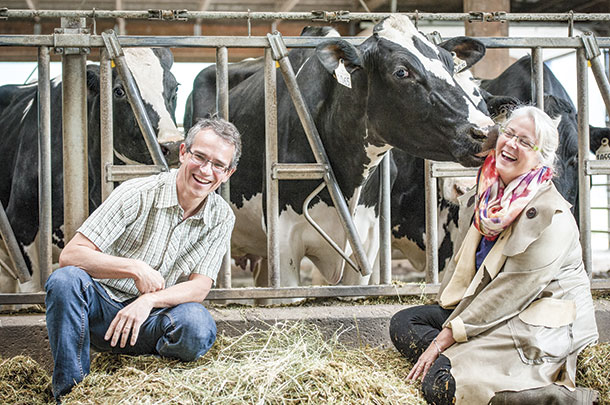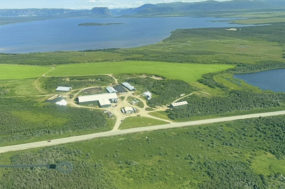The 38th seminar will be held March 10-13 at the Cambridge Hotel (formerly the Sheraton Hotel) in Red Deer, Alberta. The event starts off pre-conference tours of local farms or a pre-conference workshop on milk as a diagnostic tool for nutritional management on March 10.
The seminar agenda for the following days includes topics on secrets of healthy feeding, human and cattle well-being, student research and producer panel, nurturing the next generation, enhancing herd fertility and herd health – protect, monitor, investigate.
Following the theme, the seminar’s opening session will take a look at future matters. After a welcome from planning committee members, Marty Seymour of Farm Credit Canada will pose the question, “Can you use technology to Uber-proof your business?” Next, Nina von Keyserlingk and Daniel Weary of the University of British Columbia will talk about working towards a sustainable dairy industry. Last, Robin White of Virginia Tech will discuss the sustainability of animal agriculture in the global food system.
Progressive Dairy asked the presenters of the opening session to answer a couple of questions about their presentation. Here are the responses received from two of them.
‘Can you use technology to Uber-proof your business?’
 Marty Seymour
Marty Seymour
Director, Industry
and Stakeholder Relations
Farm Credit Canada
Why is this topic important?
SEYMOUR: No matter which part of the Canadian food system you work in – cows, combines or canola – you will be faced with choices about adopting technology. Data, artificial intelligence and robots dominate the pipeline of technological choices for farmers, while food trends create doubts about the customers of the future. When it comes to technology, the field is crowded, and the options are plentiful. You don’t have to adopt every new piece of new technology, but you have to compete with those who do.
What do you hope attendees will take away from this presentation?
SEYMOUR: This talk is designed to expose people to some of the technology of the future. The goal is to expand their minds to the possibilities and inspire them to get excited about the future of agriculture.
Building bridges: Working towards a sustainable dairy industry
 Nina von Keyserlingk and Daniel Weary
Nina von Keyserlingk and Daniel Weary
Professors and co-directors of the Animal Welfare Program
University of British Columbia
Why is this topic important?
VON KEYSERLINGK AND WEARY: Practices common on dairy farms in North America are increasingly subject to criticism by consumers, citizens and other stakeholders. In this presentation, we will review different approaches livestock farming industries have applied to counter these criticisms, explain how and why these approaches have largely failed, and then describe a new plan for stakeholder engagement that we believe will more effectively address these concerns. One approach has been to increasingly hide practices from public view – for example, by using “ag-gag” legislation to reduce the chance of people seeing images illustrating contentious practices. Another approach has been to attempt to “educate” our critics in the hope that if they better understood the reasons why these procedures were performed, they would be more willing to accept their use. We will review evidence showing that neither approach is likely to succeed; indeed, efforts to reduce transparency result in reduced trust, and attempts to educate citizens can result in increased rather than decreased concerns.
What do you hope attendees will take away from this presentation?
VON KEYSERLINGK AND WEARY: As a first step to a more successful resolution, we propose that livestock industries need to develop methods of meaningful two-way engagement with concerned citizens and use this as a basis for better understanding and, ultimately, resolving of key concerns. More importantly, people working within the dairy industry need to develop a vision for their sector and plan to ensure that all practices on farm are consistent with this vision and the underlying values.
Visit The Western Canadian Dairy Seminar for more information on the 38th Western Canadian Dairy Seminar. ![]()








